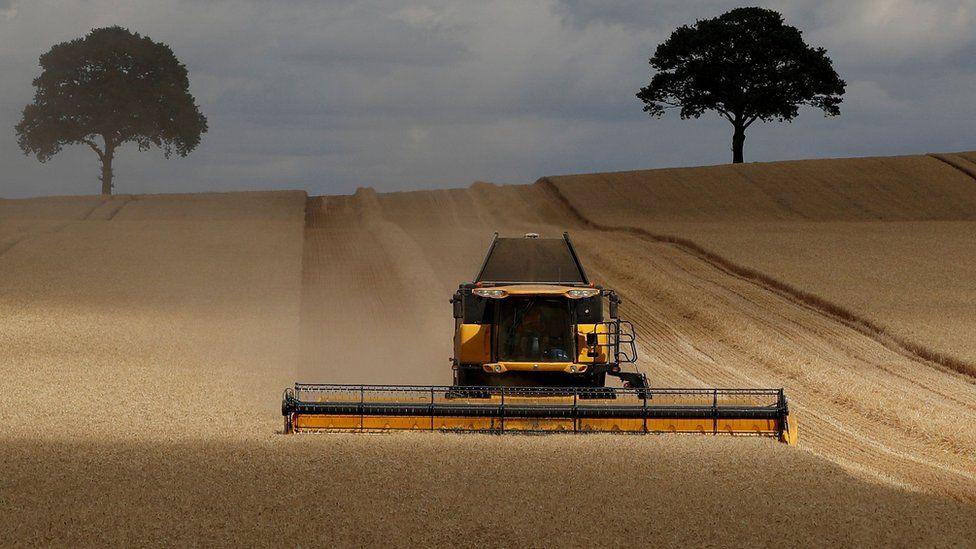Mystery behind purple fields is revealed
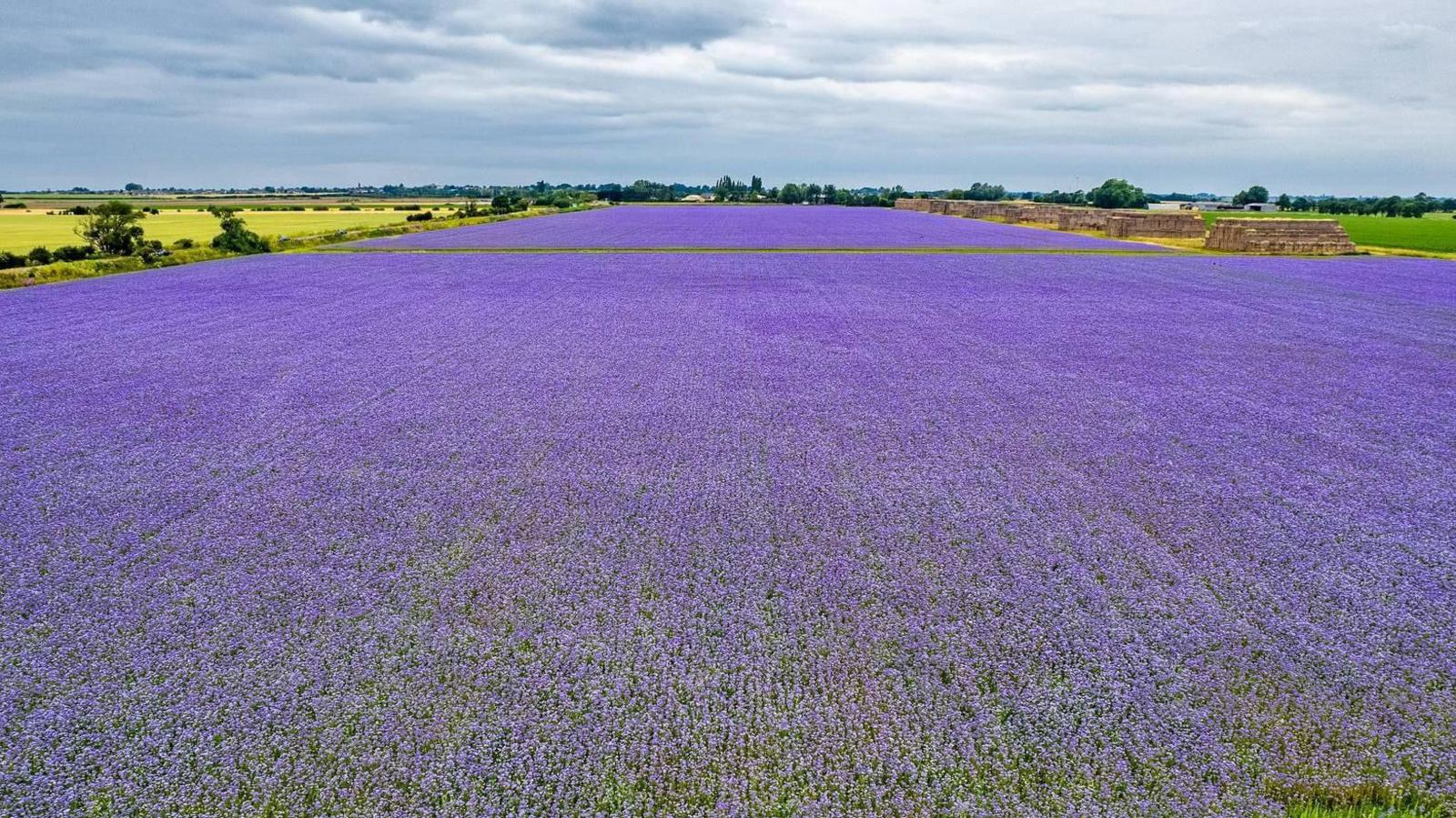
People have taken to social media to figure out what the 80-acre (32 ha) sea of purple actually is
- Published
A farmer has revealed the identity of a mystery purple crop that has left people guessing on social media.
Trevor Edgley, who runs the Nightlayer Leek Company in Chatteris, Cambridgeshire, found himself unable to drill wheat due to persistently wet fields during the spring.
He said he planted a special seed mix on land off the A142 between Chatteris and Mepal - called NUM3 - which encourages insects and wildlife.
"I think you'll start to see a lot of it about, ours has come out early because we drilled it in April, whilst we still had some moisture in the soil," he said.
Planting NUM3 is a government "sustainable farming incentive" (SFI), which improves soil health and mitigates the impacts of extreme weather through rotation.
"The government [sustainable farming incentive] pays farmers £593 per hectare per year to grow the crop," Mr Edgley said.
"We have to pay for seed, labour and establishment costs out of that money.
"Spring wheat and barley are not always that profitable, so for me, it is a safe bet to sow NUM3, and it is better for the environment too."
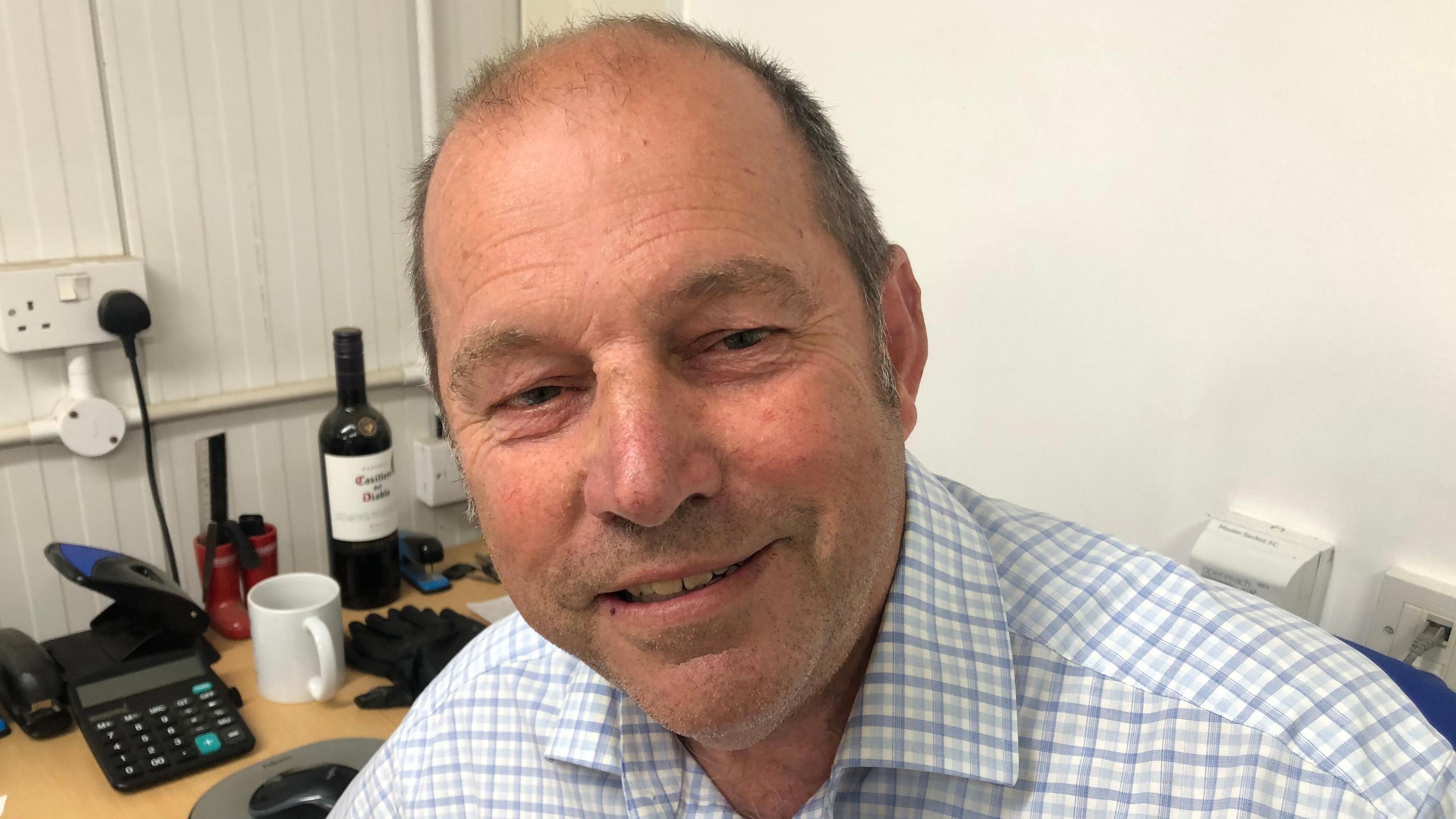
Farmer Trevor Edgley says the purple crop is a "safe bet" when the fields have been too wet to sow wheat
Commentators on social media believed the crop was linseed, borage or lavender.
"I was planning to sow wheat, but the rain has been so bad, the fields were under water till mid-March," Mr Edgey added.
"The wheat seeds have been kept in storage, we will do a germination test on them later this year, and fingers crossed, they'll make it for next year.
"I have about 100 acres growing this fairly new crop, NUM3, a mixture of seven seeds that is designed to encourage insects, bee's, pollinators and farmland birds it is also a way to manage nutrient efficiency and improve soil health."
NUM3 seed mix is made up of 50% vetch, 15% linseed, 15% buckwheat, 7.5% crimson clover, 7.5% berseem clover and 5% phacelia - which provides the vivid purple flower.
The Department for Environment, Food & Rural Affairs (DEFR) developed the incentive (SFI) to prevent too much land being taken out of food production.
"Through SFI, our aim is to support farming and farmers," a spokesperson said.
"We want to protect and improve the environment, food production and food security. We obviously don’t want SFI to be used in a way that comes at a cost to any of them.
"The evidence shows that a small number of farmers, roughly 1% of those who applied for the sustainable farming incentive in 2023, entered 80% or more of their farm into actions that involve taking land out of food production."
Follow Cambridgeshire news on Facebook, external, Instagram, external and X, external. Got a story? Email eastofenglandnews@bbc.co.uk, external or WhatsApp us on 0800 169 1830
Related topics
Related stories
- Published28 June 2022
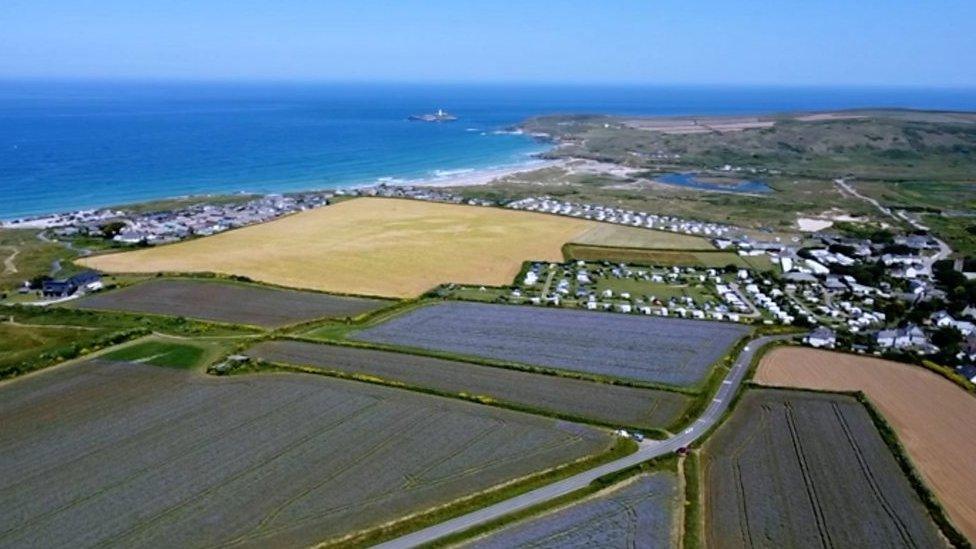
- Published29 July 2023
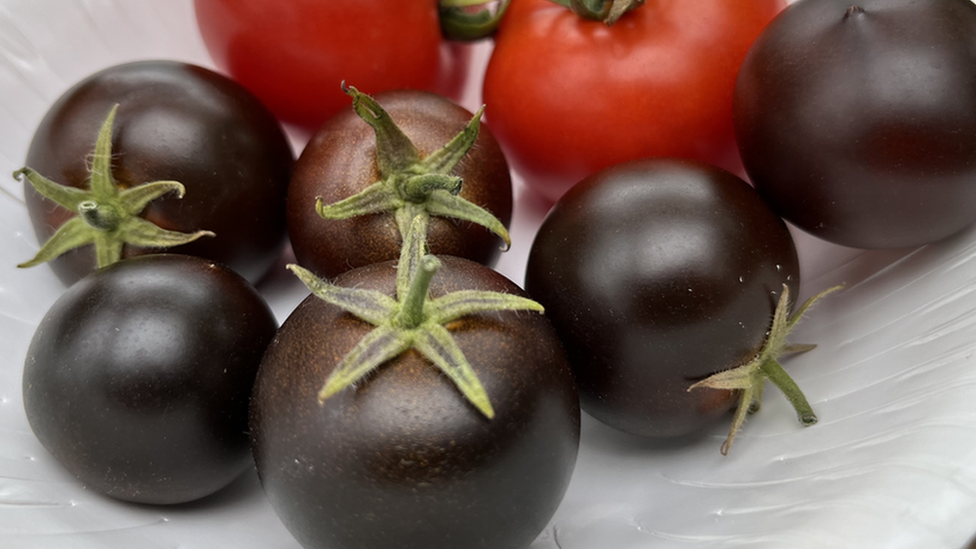
- Published5 January 2023
